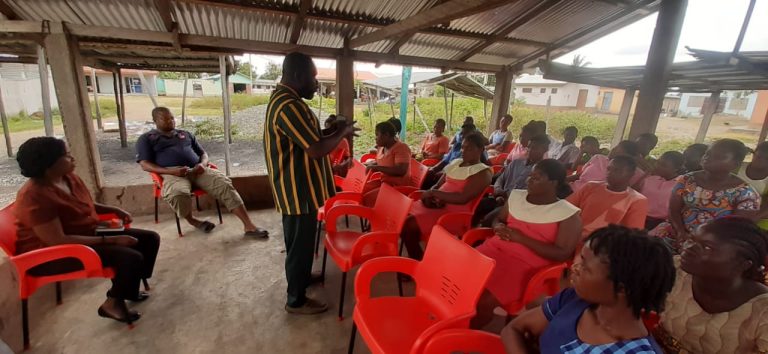|
Getting your Trinity Audio player ready...
|
The Edem Sickle Cell Foundation (ESECF), in collaboration with the National Commission for Civic Education (NCCE), has observed the 2025 Sickle Cell Awareness Month in the Central Tongu District with a sensitisation programme for members of the National Garment Association of Tailors and Seamstresses.
The event, held at the association’s hall in Adidome under the theme “Global Action; Local Impact – Empowering Communities for Effective Self-Advocacy”, sought to deepen public understanding of sickle cell disease and encourage community-led advocacy.
Mr. Courage Komla Ofori, CEO of ESECF, said the Foundation remains committed to raising awareness, educating the public, and supporting persons living with sickle cell, whom he described as “warriors.” He explained that the organisation’s vision is to promote healthier lives for children, beginning with Central Tongu before extending to other districts.
Highlighting the seriousness of the disease, Mr. Ofori noted that sickle cell is a genetic blood disorder inherited from parents carrying traits such as AS, SC, or SS, often leading to complications like acute chest syndrome, stroke, vision problems, and chronic pain. “This condition is not by choice; it is inherited. That is why education, genetic counselling, and early testing are crucial,” he stressed.
Guest speakers from the NCCE, Mr. Frank Azumah and Madam Doris Wangba, called for an end to the silence surrounding sickle cell and encouraged open conversations within communities. They advocated early newborn screening, urged young people to know their genotypes before marriage, and highlighted the need to prevent teenage pregnancies to reduce the transmission of the condition.
A total of 37 participants, including five men and 31 women, took part in discussions on early testing, stigma reduction, and strengthening self-advocacy.
Data presented by the Foundation showed rising cases in the district, with 64 reported in 2022, 83 in 2023, and 87 in 2024. Mr. Ofori said the trend highlights the urgent need for community awareness, support systems, and improved healthcare interventions. He appealed to government, health professionals, and civil society to collaborate with the Foundation to sustain advocacy and provide assistance for affected families.
“Sickle cell is not a death sentence. With the right care and support, our warriors can live healthy, productive lives,” he emphasised.
Participants praised the initiative as timely and informative, saying it improved their understanding of the genetic nature of sickle cell and the importance of early testing before marriage and childbirth. Some also commended the Foundation for its focus on women and children, adding that the programme had equipped them with practical knowledge to support family members living with the condition.
Source: myghanadaily


